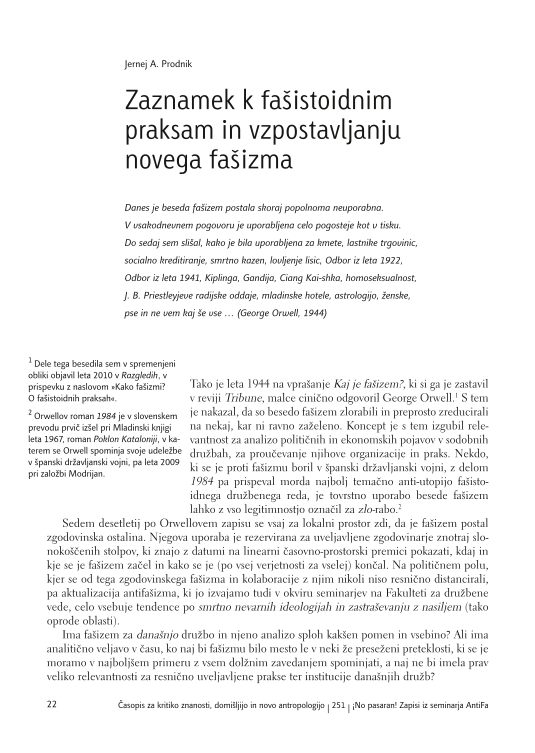The author provides a theoretical analysis of the concept of fascism, which he then applies to the present politi-cal-economic and political circumstances. He proposes that to understand fascism it is important to separate it from the historical context, while it is at the same time of crucial importance to embed it into the current historical processes in the society. Only this kind of abstraction will enable us to consider fascism in a patently changed, but in many ways similar social context. Furthermore a differentiation is suggested between a completely formed fascist order on the one hand, and fascist institutions, processes, practices and discourses on the other.
This can provide a possible distinction between a macro-level perspective, which focuses on the wider social structures and systems, and micro-practices and micro-politics, which operate at the level of everyday activities. Such differentiation is important because a suitable social context is always a prerequisite for a totally integrated (fascist) order. It is always the social context that helps to transfer fascist micro-practices into the wider and often institutional social level (for example into a broadened complex of fascist apparatuses and institutions on the national or supra-national level that potentially enable the establishment of a fascist order). This also helps us to redefine the hard and sharp opposition between fascist and non-fascist societies: in different historical moments the movement from seemingly benign fascist practices toward a proto-fascist social context and finally to a totally constructed fascist system is always possible. Defined and rethought in this way, fascism can be observed and analyzed as a movement and a process, not only as a (fully constructed and stable, often de-contextualized) structure.




